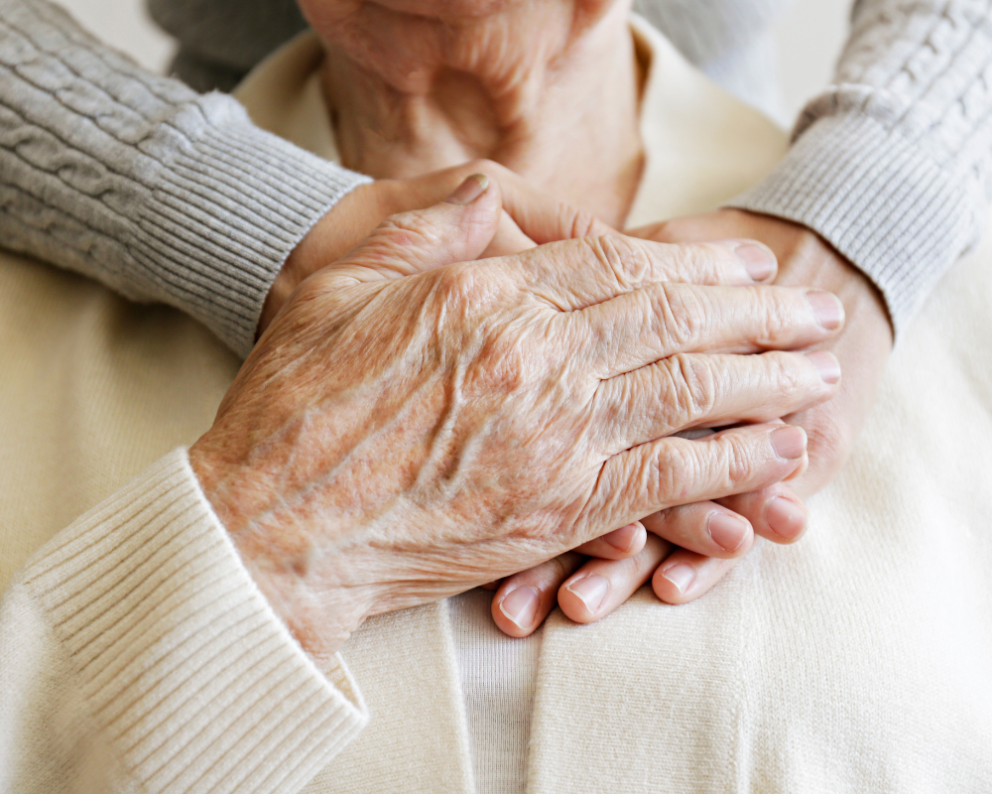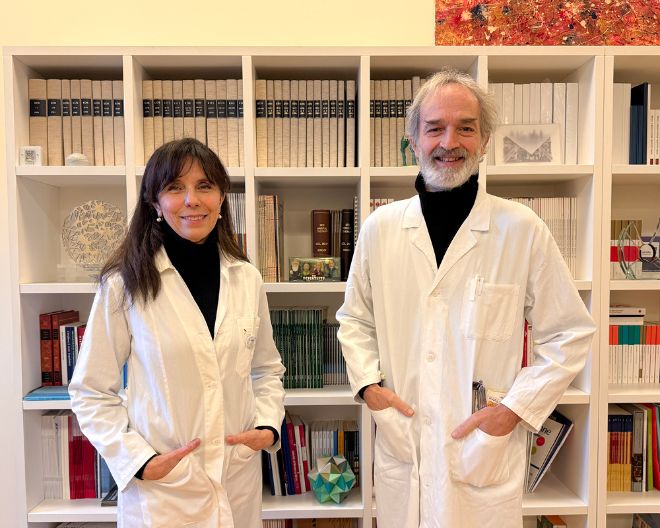
In 2050, there will be 7.6 million people over the age of 80 in Italy, three million more than now: an impressive achievement if you consider that in 1950 there were only five hundred thousand women and men who had reached the age of 80.
Demographically, the Italian population is exceptional: it combines extremely low fertility with one of the highest levels of life expectancy in the world. Characteristics that make our country the perfect international case study. This is where the challenge of Age-It, the program dedicated to research on ageing issues, starts.
/resolutions/res-l1920x10000/Age_It_UniSR-(5).jpg)
The Age-It programme
Age-It is an Extended Partnership, i.e. one of the investment lines envisaged by the Ministry of University and Research within the National Recovery and Resilience Plan (PNRR), and creates a public-private alliance to face the challenge of a society that is inexorably ageing.
It will be able to count on funding of over 114 million euros and 350 researchers, thanks to its network of partners: 27 universities, research centres, industries, agencies and organisations, with the coordination of the University of Florence.
A vast grouping of expertise, therefore, at work to study how our society is evolving and draw possible lines of intervention, from all points of view: social, economic, biomedical and technological.
A field research that will give useful indications, internationally, to societies and populations experiencing the same demographic trend and similar problems. It will be organized into 10 major challenges articulated in the various disciplinary fields, the "Spokes," with a focus on cross-cutting issues such as technology transfer and the role of learning in active ageing.
/resolutions/res-l1920x10000/Age_It_UniSR-(2).jpg)
Discussion with stakeholders
On October 25, the event “Ageing well in an aging society” was held in Milan, a focal moment for the “Age-It” research programme. At “Mosso” (Via Angelo Mosso 3, Milan), a new outpost of Milanese culture, Age-It researchers met with stakeholders in the ageing sector - over forty entities including public administrations, cooperatives, companies, Research institutions, foundations, third sector entities, investment funds, trade unions and trade associations - for an assessment of the activity carried out and a look at the future.
The aim of the meeting was to present in detail the priority challenges of the Age-It Programme and to collect ideas and proposals to better guide the network's future activities. In short, after the first months of activity, the project wanted to undergo voluntary review, show what has been achieved and ask for the contribution of stakeholders to maximize its potential impact on the society of the future.
/resolutions/res-l1920x10000/Age_It_UniSR-(3).jpg)
Giovanni Lamura, of the National Institute for Rest and Care of the Elderly (INRCA), coordinator of the Age-It Board, which is in charge of stakeholder involvement and dissemination of results, emphasizes:
“This meeting comes after the first nine months of Age-It's life and is essential to ensure that the activities being carried out respond to the real needs of the recipients of our research: ageing people, their family members and all the operators involved in sectors influenced by ageing dynamics: the labor market, the Silver Economy and social and health care services, to mention just a few.”
The Milan workshop was structured according to ten thematic tables, corresponding to the ten "Spokes" in cross disciplinary sectors. The methodology used was that of the "world café", through two shifts, each with five simultaneous tables, in which a representative of each Spoke, together with the representatives of the organizations present, discussed, assisted by a moderator, the questions (one per table) launched from the control room.
/resolutions/res-l1920x10000/Age_It_UniSR-(6).jpg)
UniSR, member of Age-It, participated in the event with Prof. Simone Cenci, Associate of Molecular Biology and coordinator of UniSR's research activities in the project, who declared:
“Aging is a degenerative process that involves cells, tissues and organs and, as such, it is scary. However, understanding the biological mechanisms that regulate it means being able to implement behaviors and habits that can reduce the negative impact of this physiological process by slowing it down. The real challenge of Age-It will be to implement interventions which, by transferring to society the scientific knowledge generated by research in the biomedical field, translate into strategic actions for the benefit of the quality of life, not only of individuals, but of an entire society that is ageing at a very high rate. Today's meeting laid solid foundations for a work that gathers all our enthusiasm, in the awareness that a project like Age-It, in the current demographic scenario, is not only useful, but even necessary".
/resolutions/res-l1920x10000/Age_It_UniSR-(1).jpg)
The role of the Faculty of Philosophy is also crucial in Age-It, which is present with 12 junior and senior researchers, some recruited specifically for this project. Prof. Roberto Mordacci, Full professor of Moral Philosophy and Pro-Rector for Humanities and Social Sciences, explains:
“The aging of the population is a challenge first and foremost to our usual way of thinking. The rhythms of life, the succession phases between young and old, the balance of policies and the entire spectrum of communication change. These raise profound moral and political dilemmas and require cultural reorientation. As the Faculty of Philosophy we will help to define moral challenges and envision solutions and transformations of social practices and concrete policies in relation to ageing. Among these, perhaps the most important is that relating to solidarity between generations: a society cannot survive if it is not supported by a positive balance of mutual help that generations have always given each other. Today that balance has changed radically and a new balance must be sought."
Adds Prof. Roberta Sala, Full Professor of Political Philosophy and University contact for Spoke 7 of Age-It:
“It is a matter, to use yet other words, of addressing questions of justice from an intergenerational perspective: posing problems of justice between generations requires, in the first instance, to distinguish between problems of redistribution and instances of recognition, even symbolic, of the peculiarity of the elderly condition as specifically vulnerable. The vulnerability of the elderly, typical of the human condition in general but exacerbated by the passing of the years, requires that we also take into due account the cultural determinants of aging and the socio-cultural representations of the elderly population. This implies becoming aware that there are no preordained answers, much less valid findings for a population as a whole, thus risking neglecting the singularity of individual experiences in favor of paternalistic solutions, which are therefore unjust as well as unsatisfactory. To this end, we will also work on the type of institutional reforms that the reality of the elderly, despite the intrinsic variety of particular experiences, requires to effectively counter discrimination against the elderly."
You might be interested in

Multiple sclerosis, breakthrough in research: researchers have identified a molecule that promotes repair of the nervous system

The microbiome as an ally against myeloma

Intrecci: a UniSR project for more inclusive and accessible cancer diagnosis

